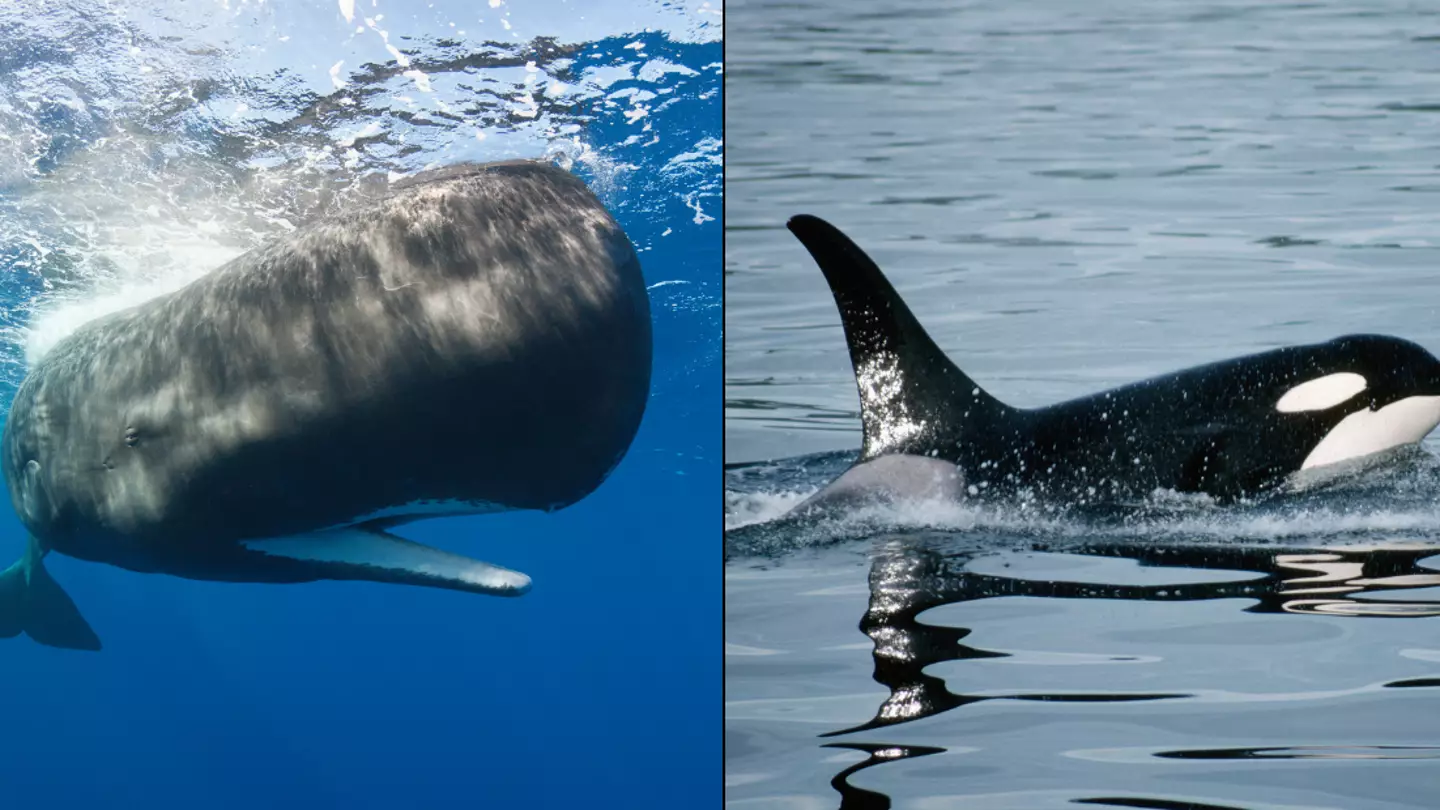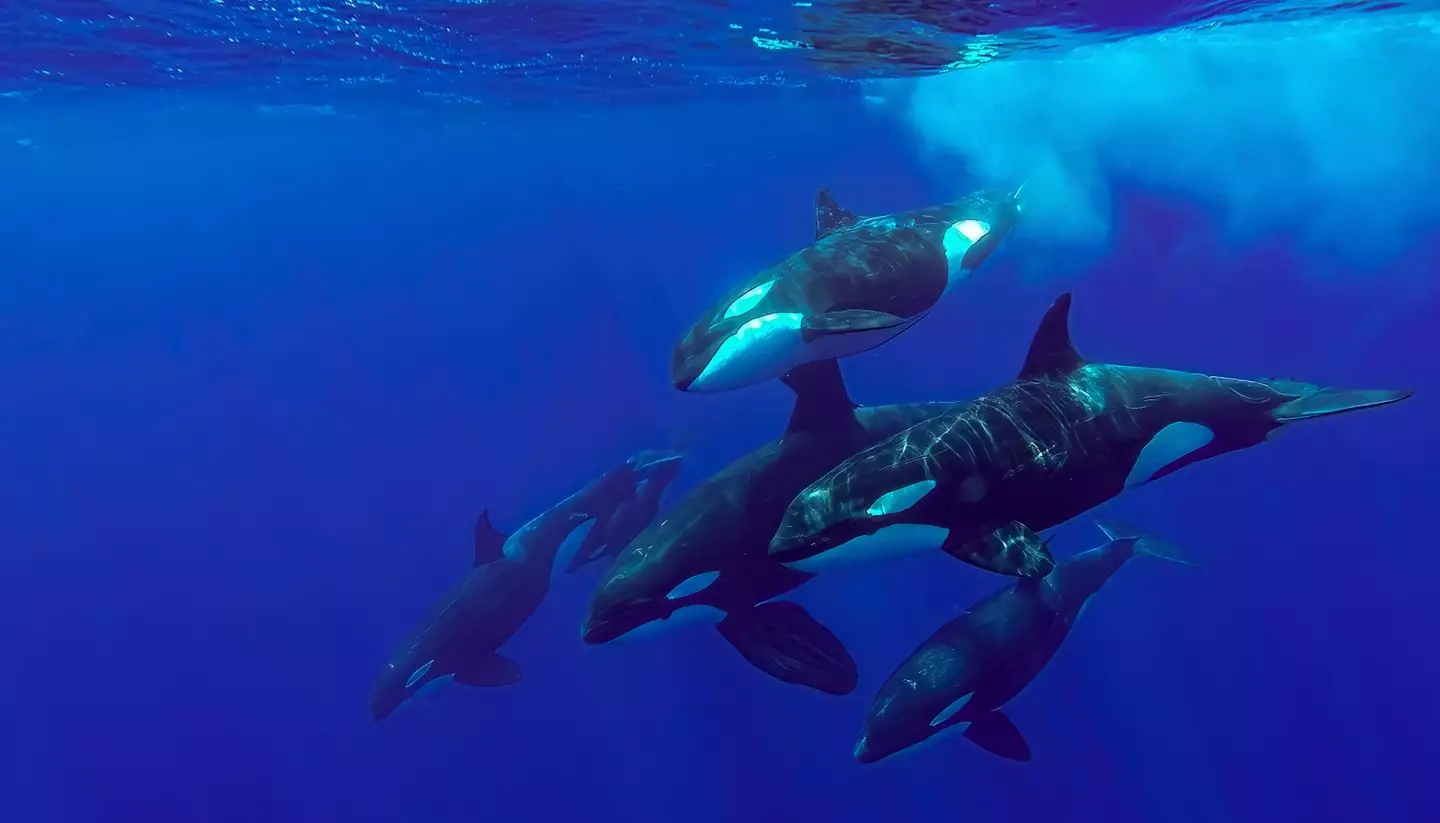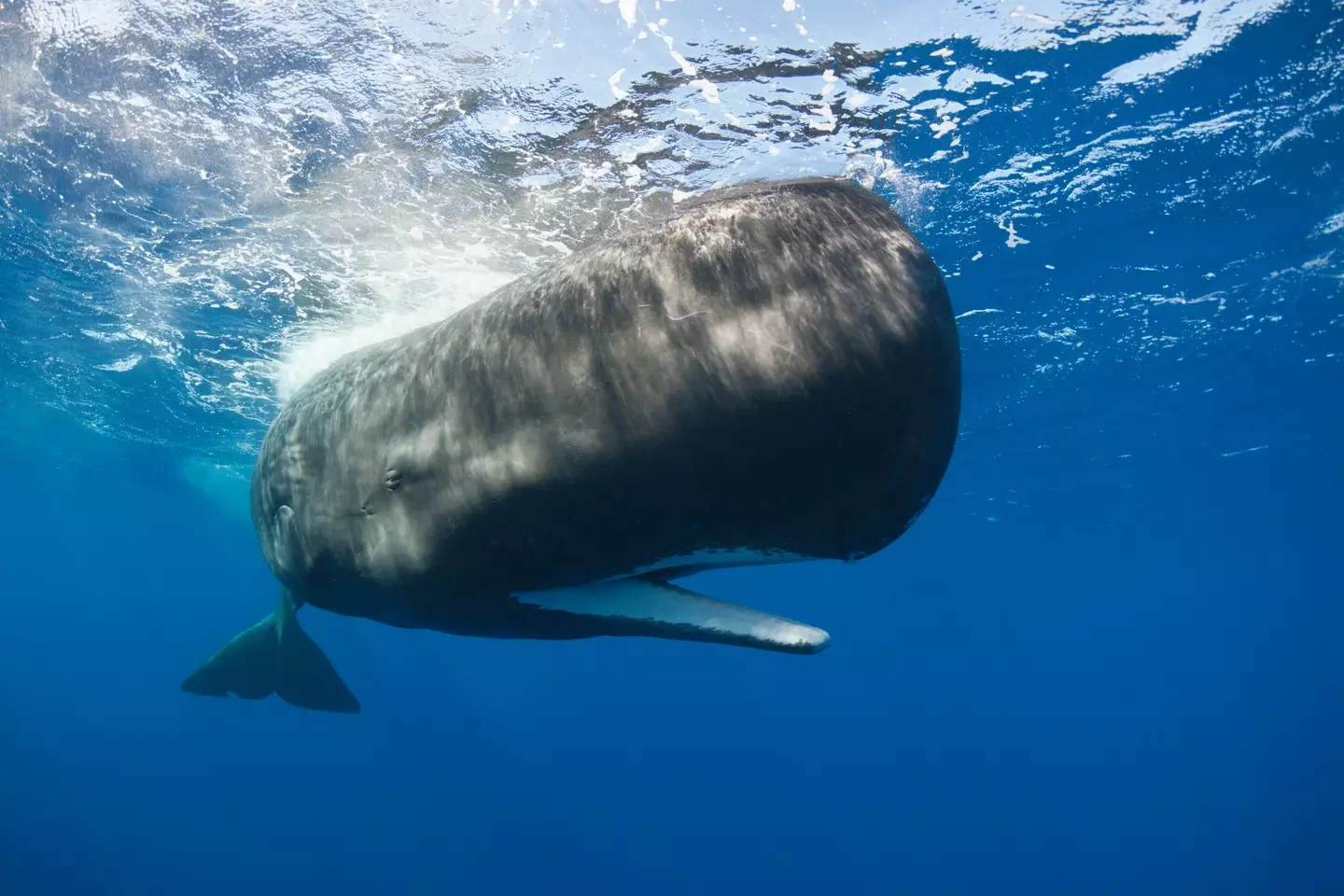
If a pod of orcas are inbound, nothing is off limits to defend yourself.
They can sink yachts with little effort and devour sharks without breaking a sweat, so any underwater creature who is unfortunate enough to cross paths with a gang of killer whale,s has to be prepared to get down and dirty.
But it turns out that animals who aren't tough enough to take on the apex predators could instead just unleash an absolute sh*t storm on them, like this quick-thinking squad of sperm whales did.
Advert
Take a look at this:
Although you may think the pelagic mammals might have just pooped their proverbial pants at the sight of a pod of ferocious orcas, scientists say it is actually an extraordinarily clever defence strategy.
Marine biologists were among the whale watchers and photographers who had clamoured onboard a Naturaliste Charters boat on Tuesday (19 March) to explore Western Australia's southern coast.
Advert
The group had headed to visit the marine life hotspot, Bremer Canyon, in the hopes of seeing some sea creatures.
So you can imagine their surprise when instead of watching a few interactions between mammals, they gawked in horror as a pod of at least 30 killer whales began to advance towards a group of sperm whales.
According to marine biologist Jennah Tucker, who witnessed the incident, the orcas suddenly began surging forward as though they were in hot pursuit of something - which turned out to be what they hoped was their lunch.

She then noticed the four sperm whales they were chasing, who appeared to be both exhausted and distressed, tightly huddle together in a circular formation.
Advert
"This is called a rosette, another defensive mechanism they use when they're under attack," Tucker told ABC News. "They were sort of poking their heads out of the water and letting out these huge heaving breaths."
The sperm whales had their heads to the centre, fanned their tails out and began frantically thrashing as the orcas' advanced towards them, while the experts onboard looked on helplessly.
"Everything kind of went quiet and there was very solemn sort of mood on the deck of the boat because we thought they'd potentially taken out a calf, as one of the sperm whales did look significantly smaller than the others," Tucker said.
A 'big, dark bubble' then blasted its way to the surface, which people initially feared was blood.
Advert
"But then the killer whales all just moved off really suddenly," the marine biologist explained.

It turned out that the sperm whales had decided to unleash the wrath of their bowels on the dangerously close predators and opted to expel a 'poonado' towards them - which worked.
The 'dark bubble' which experts had witnessed rise to the surface was later confirmed to be a 'cloud of diarrhoea' after photos and videos of the incident were assessed.
Advert
"It's called defensive defecation," Tucker continued. "Because sperm whale's diet consists mostly of squid, they actually have this really reddish coloured poo.
"And it seems like it actually did work in this case. It was like the orcas said, no, not worth our time, everyone move out."
The animal expert said that although it was thought that sperm whales were 'pretty much immune' to killer whale attacks, it seems that orcas are trying to assert their authority in the food chain.
She added: "It's actually pretty adventurous for orcas to try to take on sperm whales. They're punching above their weight."
So remember kids - apparently, a face full of faeces is a sure-fire way to warn a predator off.
Featured Image Credit: Getty stock imagesTopics: Animals, Australia, Weird, World News, Science